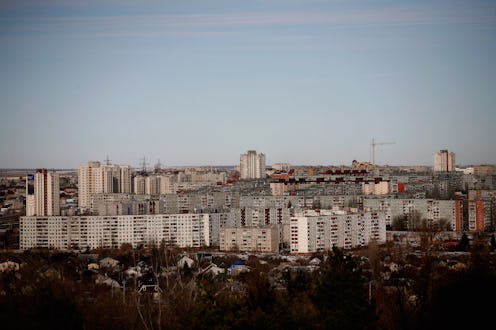News
Increased Police Out in Volgograd in Attack's Wake
Following two deadly bombings in 24 hours in the Russian city of Volgograd, at least 5,200 police, paramilitary troops and Cossack volunteers have been deployed to the city streets as the first funerals for the 34 victims are held. As dozens of civilians are being detained and no group is taking responsibility, there are concerns that the bombings are the start of a terrorism campaign leading up to, or perhaps even occurring during the Olympics in nearby Sochi — but at the very least, the games' security is being questioned.
As we reported earlier:
Only two days after a car bomb exploded in the southern Russian city of Pyatigorsk, at least 15 people were killed and dozens more wounded Sunday when a suicide bomber detonated a bomb at a railway station in Volgograd, Russia. The same town was host to another suicide bombing as recently as October — an attack that left six people dead and wounded another thirty — raising fears of violence ahead of February’s Olympic games in nearby Sochi.
No one has yet claimed responsibility for plotting the attacks, but police are searching homes and detaining people in "Operation Anti-Terror Whirlwind." So far, at least 1,500 buildings have been searched, and at least 87 people have been detained. However, they have no clear link to the bombings: Most of the detentions are for having improper documentation or resisting arrest.
Putin has a lot on the line here, as his political prestige in the international community is tied at least partly to the success of these games. And with a bad human-rights track record, security threatened and athletes nervous, finding those responsible — and doing so quickly and accurately — is more crucial than ever.
At least China's hopeful:
“The competent authorities on our side have maintained close communication and cooperation with Russia in terms of the security work for the Winter Olympics. We believe that Russia is capable of ensuring security and hosting a successful Winter Olympics,” Foreign Ministry spokeswoman Hua Chunying said.
But then again, they usually are with Russia.
